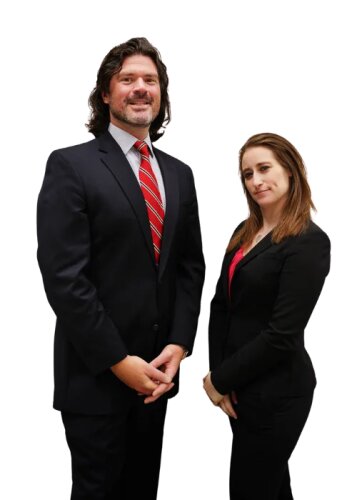Best Dependent Visa Lawyers in New York City
Share your needs with us, get contacted by law firms.
Free. Takes 2 min.
List of the best lawyers in New York City, United States
1. About Dependent Visa Law in New York City, United States
In New York City, dependent visas are governed by federal immigration law, not by city or state rules. This means the primary rules come from Congress and federal agencies like USCIS and the Department of State. NYC residents must understand how a dependent derives status from a principal visa holder such as H-1B, L-1, or J-1.
A dependent typically includes spouses and unmarried children under 21 who accompany or follow to join the primary visa holder. The dependent’s rights, including work authorization and school access, depend on the specific visa category and any accompanying employment authorization rules. In practice, many NYC residents pursue work authorization through EAD programs for dependents and may seek extensions or changes of status as family circumstances change.
Key federal rules shape these outcomes, including the Immigration and Nationality Act (INA) and the relevant nonimmigrant regulations. NYC-based families should track changes to EAD eligibility for dependents, processing times, and travel allowances. These rules can affect how families plan moves to or within New York City and how they access local services while in the United States.
“H-4 dependent spouses may apply for employment authorization if the primary H-1B beneficiary is in status and the principal has an approved or pending petition.”
Source: USCIS - H-4 Nonimmigrant Status and EAD. https://www.uscis.gov/h-4
Note: Federal visa policies and USCIS processing times can shift based on policy updates and court decisions. For NYC residents, staying informed through official sources helps with timely filings and compliant travel plans. See also the official state and city resources listed in the Extra Resources section for local support and guidance.
Recent trends to watch in NYC include ongoing updates to online filing options, extended wait times for certain employment authorization documents, and targeted guidance for families navigating status changes during tenancy, schooling, and employment in New York City. Always verify current rules on federal sites before filing.
2. Why You May Need a Lawyer
Working with an immigration attorney or licensed attorney in New York City can help you navigate complex timelines, document requirements, and potential pitfalls. Below are concrete scenarios you might encounter in NYC that commonly require legal counsel.
Scenario 1: You need work authorization for a dependent on H-4 or L-2 while the primary visa is pending or extended. A spouse in Midtown Manhattan waits for H-1B renewal and seeks an EAD to work legally. An attorney helps gather documents, assess eligibility, and file the EAD correctly to avoid delays.
Scenario 2: The primary visa holder faces a status change or denial, threatening the dependent's status. If the H-1B is denied or its extension is delayed, a lawyer can evaluate options for the dependent to maintain lawful status or pursue a change of status in the United States.
Scenario 3: A dependent aged into new schooling or a tuition change while in NYC. A child on an F-1 dependent path or a J-2 dependent may need guidance on school enrollment, scholarships, or state tuition considerations that interact with immigration status.
Scenario 4: You are facing a request for evidence or a denial of an EAD for a dependent in New York City. An attorney can assemble targeted responses, prepare avenue options, and minimize risk of losing status while appealing or re-filing.
Scenario 5: Aging out or family status changes require status adjustments. When a dependent turns 21, they may lose derivative eligibility. A lawyer can propose status adjustments, extensions, or alternative visa paths to preserve lawful status in NYC.
Scenario 6: You are navigating local services and benefits tied to immigration status in NYC. An attorney can clarify eligibility for in-state tuition, public benefits, or emergency services while remaining compliant with federal rules.
3. Local Laws Overview
Dependent visas operate under federal law, but New York City residents interact with local resources and enforcement and can benefit from city and state programs. Here are two to three jurisdiction-specific references and recent changes to be aware of.
- This is the core federal framework that defines nonimmigrant classifications and dependent relationships. It governs how dependents derive status from a principal visa holder and how eligibility for status changes is determined. Effective since 1952 and amended over time.
- - Nonimmigrant classes and employment authorization for dependents. These sections cover H-4, L-2 and related EAD provisions. Official regulatory guidance available at the Federal Register/eCFR.
- - Federal guidance under 8 CFR and related policy manuals can impact dependents seeking status changes or adjustments of status. NYC families should understand how public charge assessments may affect applications and what documentation demonstrates financial self-sufficiency.
For NYC residents, the following official resources help translate federal rules into local guidance:
- USCIS H-4 Nonimmigrant Status and Employment Authorization
- USCIS L-2 Dependent Status and Employment Authorization
- New York State Office for New Americans
- New York City Office of Immigrant Affairs
Recent NYC-specific trends include more robust guidance for families navigating school enrollment and local resources while on dependent status. Local agencies provide language assistance, housing navigation, and civic integration resources that accompany federal immigration processes.
4. Frequently Asked Questions
What is a dependent visa in the United States?
A dependent visa is a derivative status linked to a primary visa holder, typically for spouses and under-21 unmarried children. Dependents may gain limited rights based on the principal visa category. In NYC, the process follows federal rules and USCIS guidance.
How do I apply for work authorization as a dependent?
You apply for an employment authorization document (EAD) if your visa category allows it, such as H-4 or L-2. Processing often takes several months, depending on the case load and the filing method.
What documents are needed for a dependent EAD application?
Typical documents include the primary applicant's approved or pending petition, proof of relationship, and identification documents. Specific checklists appear on USCIS forms and instructions.
How long does the processing of a dependent EAD take?
Processing times vary by form and service center. USCIS processing times commonly range from a few months to several months for EADs. You can check current estimates on the USCIS website.
Do I need an attorney to handle a dependent visa case?
While you can file without an attorney, an immigration attorney helps avoid errors, explains complex eligibility rules, and can manage deadlines in NYC efficiently.
Can dependents work in New York City on their status?
Work eligibility depends on the visa category and EAD approval. H-4 and L-2 dependents may obtain work authorization if approved by USCIS.
What is the difference between H-4 and L-2 status?
H-4 depends on the principal H-1B visa holder, while L-2 depends on the L-1 visa holder. Each category has distinct eligibility, rights, and EAD rules.
Do dependents have to pay tuition or can they access in-state NY tuition?
Tuition eligibility depends on residency and status, not solely on visa type. Some dependents may qualify for in-state options if they establish NY residency per state guidelines.
How long can a dependent stay if the principal is renewing or extending status?
Dependents can stay as long as the principal maintains status and the dependent's own status remains valid. Extensions or changes require timely filings with USCIS.
What happens if a dependent ages out or the principal's status is terminated?
Aging out may require a different visa path to maintain status. If the principal loses status, the dependent may lose status as well, requiring legal counsel to pursue alternatives.
Can I travel outside the United States while my dependent application is pending?
Travel during a pending dependent petition requires careful planning. Reentry may be affected by visa validity and visa category rules; consult your attorney before travel.
What is the best way to begin the process in NYC?
Begin by confirming your visa category, collecting essential documents, and scheduling a consultation with an immigration attorney in New York City. Then prepare your filings with USCIS and stay updated on processing times.
5. Additional Resources
Use these official resources for authoritative information on dependent visas and related processes.
- USCIS - H-4 Nonimmigrant Status and EAD - Guidance on eligibility, filing, and processing for H-4 dependents. https://www.uscis.gov/h-4
- USCIS - L-2 Nonimmigrant Status and EAD - Guidance on work authorization and status for L-2 dependents. https://www.uscis.gov/l-2
- New York State Office for New Americans - State resources for immigrant integration, education, and services. https://www.newamericans.ny.gov/
6. Next Steps
- Confirm your visa category and eligibility with the primary applicant and dependents to determine which EAD or status options apply. Allocate 1-2 weeks for initial assessment in NYC.
- Gather required documents including proof of relationship, primary petition details, and identification. Expect a 2-3 week document collection window in NYC.
- Consult an immigration attorney in NYC to tailor strategy to your family and timeline. Schedule a 60-90 minute consultation and prepare questions in advance.
- Prepare and file the appropriate forms for EAD or status change with USCIS, following the official checklists precisely. Allow several weeks for prepare and review.
- Monitor case status and respond promptly to any requests for evidence (RFE) from USCIS. In NYC, timely responses can prevent delays of 3-6 weeks.
- Plan travel and school arrangements in NYC in coordination with your attorney, especially if status changes or EAD approvals are pending.
- Review renewal or extension needs in advance to maintain continuous lawful status for dependents in New York City. Begin 5-6 months before expiry when possible.
Lawzana helps you find the best lawyers and law firms in New York City through a curated and pre-screened list of qualified legal professionals. Our platform offers rankings and detailed profiles of attorneys and law firms, allowing you to compare based on practice areas, including Dependent Visa, experience, and client feedback.
Each profile includes a description of the firm's areas of practice, client reviews, team members and partners, year of establishment, spoken languages, office locations, contact information, social media presence, and any published articles or resources. Most firms on our platform speak English and are experienced in both local and international legal matters.
Get a quote from top-rated law firms in New York City, United States — quickly, securely, and without unnecessary hassle.
Disclaimer:
The information provided on this page is for general informational purposes only and does not constitute legal advice. While we strive to ensure the accuracy and relevance of the content, legal information may change over time, and interpretations of the law can vary. You should always consult with a qualified legal professional for advice specific to your situation.
We disclaim all liability for actions taken or not taken based on the content of this page. If you believe any information is incorrect or outdated, please contact us, and we will review and update it where appropriate.













